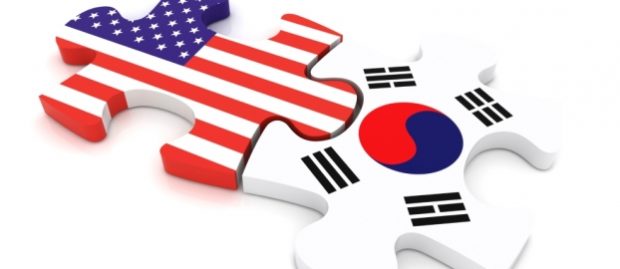Can Korea say no to US?
 Oh Young-jin – The Korea Times
Oh Young-jin – The Korea Times
It appears to be unthinkable for South Korea to give up its decades-old alliance with the United States and choose China in its place.
However, a combination of events gives a sense of reality to this unlikely scenario.
Recently, a group of opposition lawmakers visited China on a fact-finding mission over Beijing’s opposition to Seoul’s decision to deploy a U.S.-made missile interceptor here.
The delegation was given a thorough drubbing by the media for fueling the national division on the Terminal High-Altitude Area Defense (THAAD) system deployment.
Residents in Sangju, North Gyeongsang Province, where it will be installed, are up in arms for being sitting ducks in the event of a North Korean missile attack.
The opposition parties are united against it because they believe the deployment puts the nation right in the middle of an emerging big-power rivalry pitting China against the U.S.
Those opposing the deployment try carefully not to make a big case out of their THAAD stance for fear of a conservative backlash.
Despite China’s retaliatory acts against Korea, Washington has not even rendered support for Seoul. Donald Trump, the incoming U.S. president, has sent out no tweets. His national security advisor Michael Flynn only backed the deployment and gave lip service to the two countries’ alliance.
Inevitably, Seoul feels hung out to dry over this controversial deployment that is becoming a test of wills between two superpowers.
China is pulling out all the stops.
Chinese Foreign Minister Wang Yi went out of the protocol to play host to Korean lawmakers, alternating between coercion and conciliation.
Now, it is highly questionable that Korea will allow a second THAAD system into its country, having faced such strong opposition from China and meek U.S. support shown so far.
If the next president holds the key, the prospects are not rosy.
Park Geun-hye’s impeachment has dampened the national appetite or, more accurately, stomach for another conservative leader. This means Korea is likely to have a liberal head of state from the opposition camp possibly within the next six months. Moon Jae-in, leading the pack of possible candidates, served as chief of staff to the late President Roh Moo-hyun, who tried to tone down U.S. influence.
His Democratic Party of Korea has adopted a review of the THAAD deployment.
If the deployment is cancelled, it could entail a rupture in the alliance.
About 10 years after the end of the Roh presidency, such a dramatic decision as to send troops to assist the U.S.’s Iraq war at the risk of angering his supporters might not be expected from the new liberal president. Even a conservative one could not be as blindly pursuing as Lee Myung-bak or Park.
Also unhinging the alliance is Trump.
He insulted Seoul for being a free rider, not paying a fair share for U.S. military help that protects it from the North, and taking a lopsided advantage from their bilateral trade pact.
The Trump logic is right and wrong at the same time. Right, because the U.S. has been of great help to Korea. But wrong, because if it was not much help, Korea would have had fewer incentives to maintain an alliance whose terms are unilaterally dictated by the U.S.
As Trump asserted, Seoul is many times bigger than Pyongyang by the size of its economy so it should increase its defense budget proportionally, reducing its reliance on the U.S. and raising its self-defense capability. Trump may help Seoul to realize how big it has become and to meet its obligations proportionally.
In that sense, the Trump presidency is set to give an additional impetus to the tendency for the two allies to grow apart.
Already, the U.S. under Trump is becoming isolationist, forcing companies to stay in the U.S. to create more jobs for Americans. The new U.S. administration will be protectionist, closing its markets to imports. Whether the combination of protectionism and isolationism works for the U.S. is one thing, but for Korea, it would be another reason to find a new market and let in more light between the two allies. Already, China is by far Korea’s largest trading partner. The sea of Chinese tourists provide a lifeline for Korea’s services industry, being joked about as a reason for the North not to invade the South.
The closer ties between Seoul and Beijing could make Pyongyang less strategically important to it and provide a solution to the North Korea problem ― its increasing brinkmanship on the basis of its growing missile and nuclear arsenal. After all, China caters to the North’s needs because Pyongyang serves as a buffer against U.S. forces deployed in the South. If Beijing can gain a greater distance from the U.S. and breathe more easily, it could find an added incentive to disarm the North of its missiles and nuclear warheads.
Adding to this outlook is Trump’s isolationist tendency that could lead to his decision to pull out of Korea. It could accelerate a half-hearted effort during the outgoing Obama administration to seek a peace treaty with Pyongyang. The U.S. left South Vietnam after it struck the Paris Peace Accords with the communists.
Any relationship can’t last forever. The only way to ensure its continuation is to review and fix it to meet a new set of challenges. Whether the two allies see such an effort as worthwhile appears to be an open question.
























































